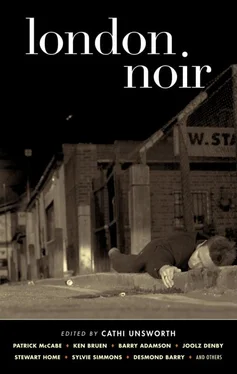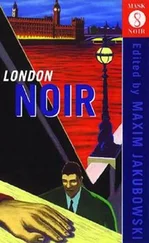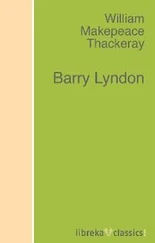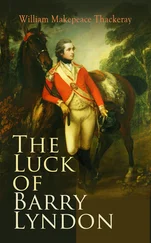Desmond Barry - London Noir
Здесь есть возможность читать онлайн «Desmond Barry - London Noir» весь текст электронной книги совершенно бесплатно (целиком полную версию без сокращений). В некоторых случаях можно слушать аудио, скачать через торрент в формате fb2 и присутствует краткое содержание. Город: New York, Год выпуска: 2006, ISBN: 2006, Издательство: Akashic Books, Жанр: Детектив, на английском языке. Описание произведения, (предисловие) а так же отзывы посетителей доступны на портале библиотеки ЛибКат.
- Название:London Noir
- Автор:
- Издательство:Akashic Books
- Жанр:
- Год:2006
- Город:New York
- ISBN:978-1-888451-98-6
- Рейтинг книги:4 / 5. Голосов: 1
-
Избранное:Добавить в избранное
- Отзывы:
-
Ваша оценка:
- 80
- 1
- 2
- 3
- 4
- 5
London Noir: краткое содержание, описание и аннотация
Предлагаем к чтению аннотацию, описание, краткое содержание или предисловие (зависит от того, что написал сам автор книги «London Noir»). Если вы не нашли необходимую информацию о книге — напишите в комментариях, мы постараемся отыскать её.
Cathi Unsworth
Sounds
Melody Maker
Purr
Bizarre
The Not Knowing
London Noir — читать онлайн бесплатно полную книгу (весь текст) целиком
Ниже представлен текст книги, разбитый по страницам. Система сохранения места последней прочитанной страницы, позволяет с удобством читать онлайн бесплатно книгу «London Noir», без необходимости каждый раз заново искать на чём Вы остановились. Поставьте закладку, и сможете в любой момент перейти на страницу, на которой закончили чтение.
Интервал:
Закладка:
But at night the market belongs to the cats. They are everywhere. They don’t need to fight, there’s always plenty of food to go round; they just wait their turns in the shadows.
At least they keep the rats away , thought Heldon, in a transparent attempt to console himself. A foot-long rodent scuttled behind a wheelie bin. The cats’ eyes remained fixed on the larger intruder. “Don’t mind me,” he said out loud, “just keep eating your dinner.”
“Ignore the cats, they’re just keeping an eye out for troublemakers.”
The deep, careful African voice came from a closed stall within a concrete shell on the other side of the road; a tired-looking sign above a closed wooden door read, Bouna Fabrics Afr , before trailing off into decay.
The cats returned to their business. Heldon crossed the road and opened the door.
“Hello, Ani. You’ve got yourself a few more cats since I was last here.”
“Yes, my friend. At least they keep the rats away, eh?”
Aniweta smiled and the men shook hands. A Nigerian barrel of a man with a gold-ringed grasp to match, his strong dark hand engulfed Heldon’s puffy pink-white flesh. He claimed to be in his forties. But his watery eyes and leather-tan skin made Heldon think he was older than that.
“It’s good of you to see me,” said Heldon.
“Well, it’s not as if I have a choice, eh? Come, let’s go out back, this place gives me a headache.” Aniweta turned, pushed his way through the lurid yellow and green fabrics hanging from the ceiling, and disappeared.
A thick black curtain veiled a door leading into a small, dimly lit room. Lined shelves held rows of unlabeled glass jars containing dried plants, powders, and things too deformed to be identified as animal, mineral, or vegetable. A heavy wooden desk, its surface covered with what could just as easily be scientific or magical debris — scales, tongs, a pestle and mortar, stains, scorch marks, and candle wax — stood near the wall facing the entrance.
Aniweta sat down on a sturdy wooden chair and looked expectantly at Heldon.
The sickly aroma of faded incense, over-ripe vegetables, and old meat reminded Heldon of the first time he’d been down here. That was almost five years ago. Then he had been a little afraid, though he would never have admitted it at the time. Now he was just angry.
“There’s been another one, Ani. But I suppose you know that already.”
“Yes, I know. A girl this time. No doubt you will call her Eve.”
Heldon knew the market well. You had to, working in this neighborhood. Mostly it looked after itself, a closed system, and it was best not to get involved. The force had their own people in there, and the market presumably had its own people in the force. Recycled mobiles and other stolen goods were one thing. They could be dealt with quietly. But there were other things that could not be ignored. As the trade in guns and drugs got a little too casual, like it did every year, a few stalls were inevitably raided, as was the old pub on the corner of St. Mark’s Rise, which was now less popular, though more peaceful, as a beautician’s.
But all this was regular police work, and so no longer Heldon’s business.
At first, bush meat was his business. Chimps mostly, but also the odd gorilla, brought in from the Congo and Gabon. An Italian punk girl had almost fainted on seeing a huge, dark, five-fingered hand fall out of brown paper wrapping as it was passed to a customer at the Sunny Day Meats stall.
The raids found no whole animals, only parts — heads, feet, genitals, hands — most too precious for food and sold only for muti or juju. Medicine. Magic. They turned up something else too. The squad at first thought the bag contained parts of a baby chimp: fingers stripped of skin, a dark and shriveled penis and scrotum, teeth. But forensics found otherwise. They were human.
The stallholder was arrested.
Heldon’s team had kept the details from the press, but Aniweta had known. As a sangoma, a witch, he knew many things. Heldon knew very little about him, however, except that he had emigrated to London from Nigeria in the 1970s, had a UK passport, and no criminal record. He had always proved a reliable source of local and traditional knowledge, and his calm manner, coupled with a dark sense of humor, had commanded Heldon’s respect and, on occasion, fear.
At first Heldon had assumed the parts were imported. That was until September 21, 2001, the autumn equinox, when a boy was fished from the Thames outside the Globe Theatre. The five-year-old’s body was naked, apart from a pair of orange shorts, put on him, it turned out, after he had been bled to death. Then his head and limbs had been severed by someone who knew precisely what they were doing.
They named him Adam. It was sickening to keep referring to him as “the corpse” or “the torso.” They initially thought he was South African, but an autopsy revealed otherwise — inside the boy’s stomach was a stew of clay, bone, gold, and the remains of a single kidney-shaped calabar bean. The calabar bean was like a neon sign to the investigation. The plant grows in West Africa, where it’s known as the “doomsday plant” because of the number of accidental deaths it causes. It’s also used to draw out witches and negate their power — once a bean is eaten, only the innocent survive. The shorts were another clue. Bought in a German Woolworth’s, they were coral orange for the orisha spirit Ochun, the river queen of the Yoruba religion: the great diviner who knows the future and the mysteries of women.
The calabar would have caused his blood pressure to rise painfully, followed by convulsions and conscious paralysis; his screams imbuing the magic with a rare and terrible strength. Then his throat was slit and his torment ended by a final blow to the back of the head. Once dead, the butchery began. The blood was drained from his body and preserved; his head and limbs removed, along with what is known in muti as the atlas bone: the vertebra connecting his neck to his spine, where the nerves and blood vessels meet.
The boy’s genitals, still intact, suggested that it wasn’t his body parts the killer was after. It was his blood, drained slowly and carefully from his hanging corpse. Adam died to bring somebody money, power, or luck. Perhaps the slave traffickers who brought him to London. His journey probably began when he was snatched or sold in Benin, and continued through Germany before reaching these shores, his final destination.
Somebody had cared for Adam before he died — there were traces of cough medicine in his system. Who knows whether he was brought here with sacrifice in mind, but had he not been marked for death, he might have ended up working as a slave, or as a prostitute. At least then he’d have had a chance.
Despite arrests in London, Glasgow, and Dublin, and prosecutions for human trafficking, nobody was convicted of the boy’s murder. Heldon had burned with frustration for months, but he had managed to keep it together, unlike others in the team. The three-year investigation had taken its toll on O’Brien, the detective in charge. He’d quit the force a nervous wreck at what should have been the peak of his career. Heldon had been his deputy on the Adam case; he’d seen the strain, the shards of paranoia puncture O’Brien’s hardman armor.
And now there was another corpse.
Aniweta was right. They had called her Eve.
The girl had been mutilated like Adam, her torso wrapped in a child’s cotton dress; white with red edging. Dustmen had tipped her out of a wheelie bin on December 5, four days ago, outside a dry cleaners on White Horse Street, near St. James’s. She was probably six years old.
“What can you tell me, Ani?” Heldon asked the san-goma.
Читать дальшеИнтервал:
Закладка:
Похожие книги на «London Noir»
Представляем Вашему вниманию похожие книги на «London Noir» списком для выбора. Мы отобрали схожую по названию и смыслу литературу в надежде предоставить читателям больше вариантов отыскать новые, интересные, ещё непрочитанные произведения.
Обсуждение, отзывы о книге «London Noir» и просто собственные мнения читателей. Оставьте ваши комментарии, напишите, что Вы думаете о произведении, его смысле или главных героях. Укажите что конкретно понравилось, а что нет, и почему Вы так считаете.










